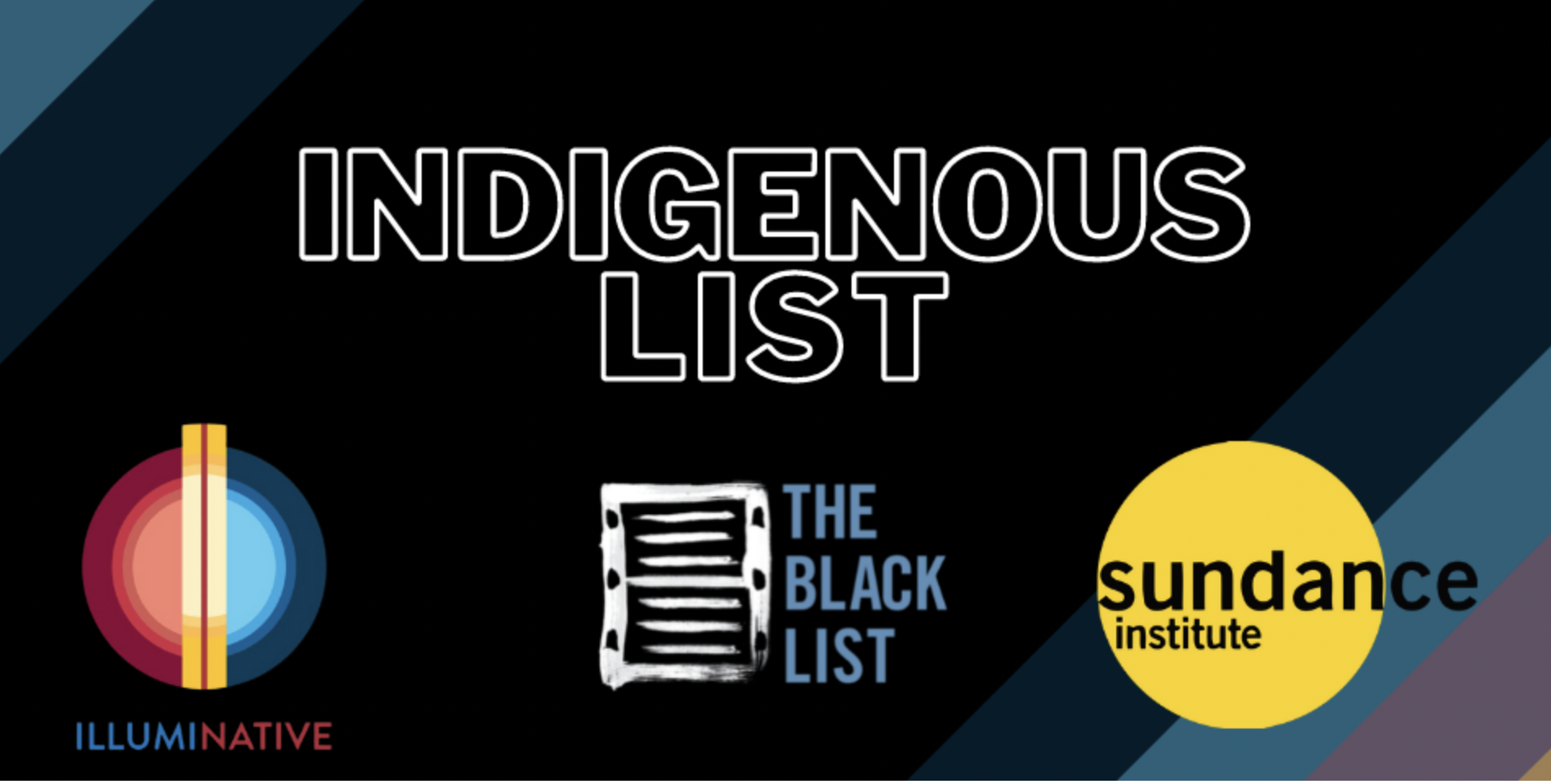
- Details
- By Kelsey Turner
IllumiNative, The Black List and the Sundance Institute announced eight finalists for the 2022 Indigenous Screenwriters List on Tuesday morning. Launched two years ago, the Indigenous List features some of the most promising film and television scripts written by Indigenous artists, providing them a platform to showcase their scripts and connect with other storytellers in the industry.
“The Indigenous List provides an intimate look at the depth of talent and power of Native creatives in the entertainment industry,” said Crystal Echo Hawk, founder and executive director of IllumiNative, in a Sundance Institute news release. “These Indigenous writers are leading the way and showing the power of Native authored stories.”
The 2022 screenwriters will have the opportunity to meet with four Indigenous creatives, including the Sundance Indigenous Program’s producer and former director Bird Runningwater (Cheyenne/Mescalero Apache), critically-acclaimed actor and director Michael Greyeyes (Nêhiyaw-Plains Cree), showrunner and co-creator of Rutherford Falls Sierra Teller Ornelas (Navajo), and showrunner and co-creator of Reservation Dogs Sterlin Harjo (Seminole Creek/Muscogee Creek).
The 2022 Indigenous List screenwriters and their scripts include:
Taietsarón:sere ‘Tai’ Leclaire (Kanien’kehá:ka) with How to Deal with Systemic Racism in the Afterlife
Logline: Lyle Westman is dead and over it. When he discovers he has to spend 1400 years haunting in redface, he decides to strike back at the systemic problems plaguing the afterlife.
Alex Nystrom (Ojibwe) with Between
Logline: On a mysterious sinking island off the coast of Louisiana, home to a tight-knit Native community, a compulsive man finds himself up against untold tribal secrets, disappearing children, and the unearthing of a repressed traumatic past.
Bryson Chun (Kanaka Maoli) and Tara Aquino (Kanaka Maoli) with Don’t Freak
Logline: What do you do when your ex writes a song about you and becomes the biggest popstar in the world? If you kidnap your best friend, steal a horse, and crash Good Morning America to confront her were on your breakup bingo card, then you win!
Maya Rose Dittloff (Mandan, Hidatsa, Arikara (MHA Nation)c/ Amskapi Pijkuni) with Sweetness of the Blood
Logline: Rose Home Gun returns to her childhood home on the Blackfeet Reservation when ghosts of the past rise to threaten her reality — and her sanity.
W.A.W. Parker (Northern Cheyenne) with The Baron
Logline: Love is a battlefield when a brash, flamboyant, gay Prussian military commander runs into his ex at Valley Forge after he’s hired by George Washington to whip the fledgling American Army into shape during the darkest days of the Revolutionary War.
Brian Bahe (Tohono O’odham) with Decolonize
Logline: When the United States is given back to Indigenous people, two self-involved millennials are forced into a leadership role they didn’t sign up for.
Neil Tinkham (Chamorro) with The Taotaomona
Logline: A child of divorce goes on a hunt to capture a mythical creature that lives in the jungle, serendipitously bringing his family closer in the process.
Kathryn Machi (Cherokee) with June Rose
Logline: In San Francisco in the late 1960s, a housewife and mother of three teenagers belatedly discovers her Cherokee heritage and defies her conservative husband — and her Cherokee father — to join the Red Power and feminist movements.
Learn more about The Indigenous List at https://illuminatives.org/the-future-is-indigenous/
More Stories Like This
Zuni Youth Enrichment Project Takes Top Emerging Artist Apprentices to Phoenix for Artistic Exploration and Cultural ImmersionFrom Dishwasher to Award-Winning Chef: Laguna Pueblo's Josh Aragon Serves Up Albuquerque's Best Green Chile Stew
Rob Reiner's Final Work as Producer Appears to Address MMIP Crisis
Vision Maker Media Honors MacDonald Siblings With 2025 Frank Blythe Award
First Tribally Owned Gallery in Tulsa Debuts ‘Mvskokvlke: Road of Strength’
Help us defend tribal sovereignty.
At Native News Online, our mission is rooted in telling the stories that strengthen sovereignty and uplift Indigenous voices — not just at year’s end, but every single day.
Because of your generosity last year, we were able to keep our reporters on the ground in tribal communities, at national gatherings and in the halls of Congress — covering the issues that matter most to Indian Country: sovereignty, culture, education, health and economic opportunity.
That support sustained us through a tough year in 2025. Now, as we look to the year ahead, we need your help right now to ensure warrior journalism remains strong — reporting that defends tribal sovereignty, amplifies Native truth, and holds power accountable.
 The stakes couldn't be higher. Your support keeps Native voices heard, Native stories told and Native sovereignty defended.
The stakes couldn't be higher. Your support keeps Native voices heard, Native stories told and Native sovereignty defended.
Stand with Warrior Journalism today.
Levi Rickert (Potawatomi), Editor & Publisher

